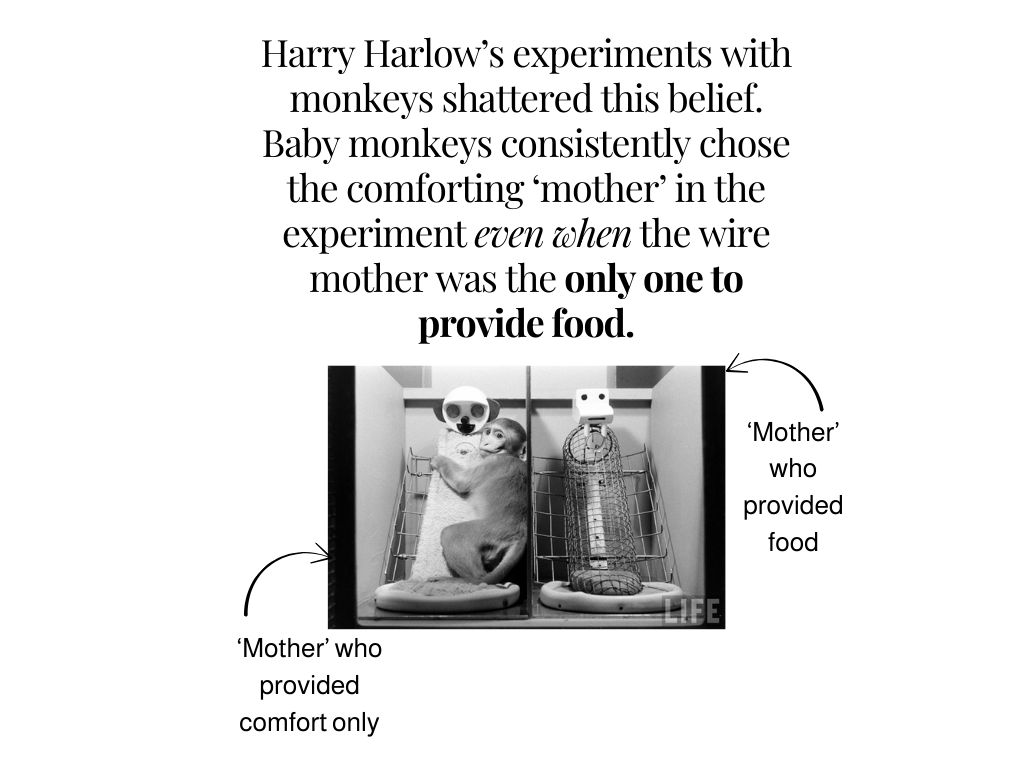“But my childhood was ok… so my lack of confidence must be down to me”
Having your physical needs met (or even growing up wealthy) does NOT guarantee that your actual needs were met, and science proves the difference.
Before the 1950s, psychology generally believed attachment was about physical needs.
Food and shelter = healthy child.
Harry Harlow’s experiments with monkeys shattered this belief. Baby monkeys consistently chose the comforting ‘mother’ in the experiment even when the wire mother was the only one to provide food.
What this revealed?
Physical needs do not equate emotional needs. Children need comfort, security, and emotional attunement. Bowlby 1969 found children experience seperation anxiety even when physical needs are met.
It’s about attunement.
Caregivers must be 'attuned' - recognising and responding to emotional cues, not just physical ones
The reality?
Many people had physically adequate childhoods (maybe even better than adequate) but emotionally absent ones. Both matter for healthy development and confidence as an adult.
This isn’t about blame.
Many parents who are not attuned, did not have attuned parents themselves. They are often doing the best they can.
But often the consequences can be feelings of inferiority and/or social anxiety as an adult, and this is valid and understandable, regardless if your physical needs were met.
When we work with neglected emotions in therapy, we’re not working to blame parents.
We’re working to process the legacy of needs that were never met, even if other ones were.
